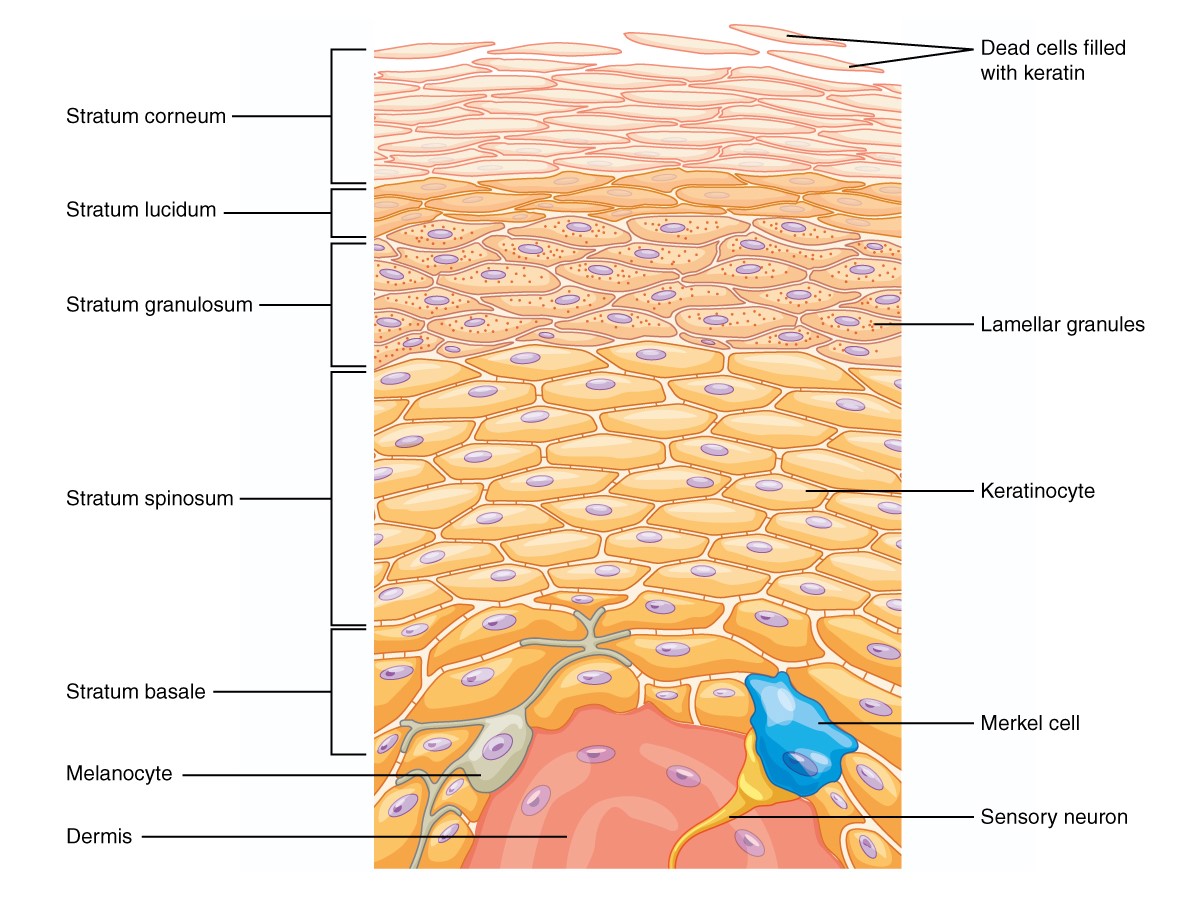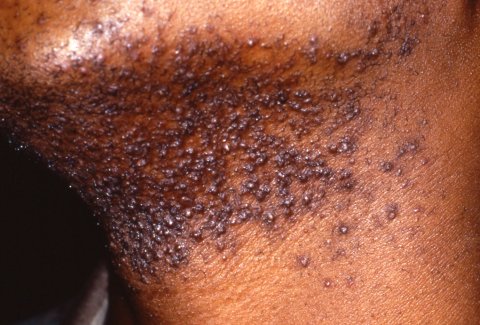Playlist
Show Playlist
Hide Playlist
Folliculitis
-
Slides Dermatology Infectious Disorders.pdf
-
Download Lecture Overview
00:01 In dermatology we'll take a look at those that are infectious in nature. 00:05 Uh, there are a lot of repetition here with microbiology as well as you can imagine. 00:12 We begin our topic by looking at folliculitis. 00:14 And I want to make sure that by the time we're completed with our discussion that you're quite clear as to what is, what does it mean to have folliculitis in a form called carbuncle and abscess. 00:25 So on and so forth. First, think of a follicular unit and that basically is going to house your hair. 00:32 Right. So think about the hair that's coming out of your skin. 00:35 And it's coming through a follicular unit. 00:37 So infection of the hair follicle is what folliculitis is. 00:42 Usually refers to bacterial folliculitis. 00:44 Usually. So that's where you want to go with this. 00:47 And it's continuum of furuncles, carbuncles and abscesses. 00:55 You think of it as such from henceforth. 00:58 You'll be in good shape. 00:59 So say that you had an infection of the follicular unit and it wasn't properly managed. And at some point in time, you can imagine that that infection is going to get more severe. 01:10 And with the continuum, it's the furuncle, carbuncle and an abscess formation on the skin, which could then also include the follicular unit. 01:19 Are we clear about the big picture of folliculitis. 01:22 And if you take a look at the image that has been provided, that I'm showing you folliculitis where a hair follicle unit has been infected. 01:34 The demographics can occur at any age group, can involve terminal and vellus hairs. 01:40 Almost all cases are caused by staph aureus. 01:44 That's where your focus should be on. 01:46 Cases in the groin may be caused by what's known as your gram-negative type of bacteria. 01:53 And degree of inflammation then dictates the presentation. 01:57 The culture must be done so that you could then look for your particular organism. 02:03 Management of folliculitis, oral antibiotics such as dicloxacillin or cephalexin. 02:11 Consider culture for those that are non-responding and 25% recurrence in all comers anyway. 02:19 Incision and drainage for large fluctuant lesions. 02:21 Imagine that now. 02:22 The folliculitis then goes on to become an abscess and drainage is necessary. 02:27 Packing and marsupialization rarely required. 02:32 So please do not choose this as being an answer choice. 02:35 It would be a distractor when it comes to folliculitis. 02:39 Differential diagnoses. 02:41 If it's acne vulgaris, remember that this would be a condition that's taking place in your pubertal age of population and anarchy. 02:50 Usually on the face and upper trunk only, and the fact that you have comedones as being a feature of acne and not of folliculitis. 02:58 And in folliculitis, you're focusing upon the hair unit. 03:04 Another differential diagnosis here, it's called prurigo nodule, which is more or less a neurodermatitic type of excoriation, not necessarily follicular-based. 03:15 And the fact that it's limited to those areas that are reachable because here you're thinking about this being a neurodermatitic type of condition. 03:26 A differential diagnosis also known as your prickly heat, and by that we mean miliaria and with miliaria occlusion of your eccrine sweat duct. 03:39 I'm not referring to malaria, but this is miliaria. 03:42 Extravasation of sweat into your dermis with inflammation and often in body folds and areas in contact with the occlusion.
About the Lecture
The lecture Folliculitis by Carlo Raj, MD is from the course Infectious Skin Diseases.
Included Quiz Questions
What type of organism most often causes folliculitis?
- Bacteria
- Viruses
- Fungi
- Parasites
- Archaea
A 24-year-old man presents with small, yellow pustules confined to the hair follicles along the beard neckline. He reports pain and redness gradually increasing for the last couple of days. On examination, there are inflamed follicles. Gram stain shows cocci in grape-like clusters. What is the best next step?
- Oral antibiotics
- Biopsy
- Packing and marsupialization
- Incision and drainage
- Culture of exudate
Customer reviews
5,0 of 5 stars
| 5 Stars |
|
5 |
| 4 Stars |
|
0 |
| 3 Stars |
|
0 |
| 2 Stars |
|
0 |
| 1 Star |
|
0 |





